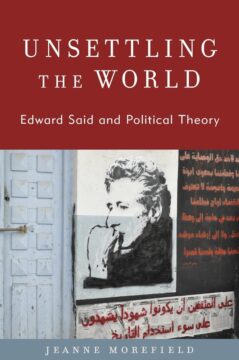Conor McCarthy in the Los Angeles Review of Books:
 Edward Said, the 20th anniversary of whose death has just passed, was one of the United States’ greatest literary critics of the last 50 years. But he was also an intellectual, a figure who transcended or stepped beyond his professional location to think and speak publicly, about matters of public import, for and to a public.
Edward Said, the 20th anniversary of whose death has just passed, was one of the United States’ greatest literary critics of the last 50 years. But he was also an intellectual, a figure who transcended or stepped beyond his professional location to think and speak publicly, about matters of public import, for and to a public.
Although Said was trained and practiced as a critic-scholar, the socioprofessional category that really interested him was that of the “intellectual.” Said’s interest in intellectuals and in making himself an intellectual—a central concern of his first two books, as Timothy Brennan pointed out years ago—was what enabled him to consider the realm of culture as a major zone of political engagement. For Said, the cultural intellectual could—and should—take on the tasks set by Noam Chomsky, in his 1967 essay “The Responsibility of Intellectuals”: to “speak the truth and to expose lies.”
Said lived up to that responsibility with great seriousness. Even today, his work and positions offer and embody provocations for disciplines where their effects remain yet unfelt. The challenge of considering these resonances lies at the core of political theorist and Oxford professor Jeanne Morefield’s intriguing monograph Unsettling the World: Edward Said and Political Theory (2022). Morefield argues forcefully that although political theory has only referenced Said’s work in passing, his ideas might be used to effect a thorough reworking of the discipline.
More here.
